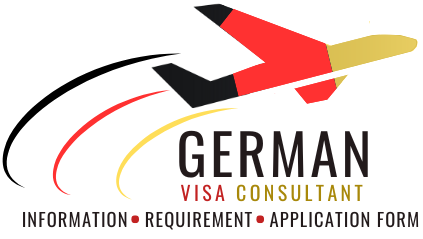Working as a Freelancer in Germany from A to Z
Germany is a colorful location for Working as a Freelancer in Germany from A to Z – Freelancing in Germany, with a huge variety of possibilities and a structured prison machine that makes freelancing an attractive option for many experts. If you’re thinking about freelancing in Germany, know-how the necessities, tax duties, and German terminology for freelancers can help you navigate this profitable profession path.
Who Can Freelance in Germany?
To freelance in Germany, positive criteria must be met, mainly in case you’re now not an EU or EEA citizen. Here are some crucial factors:
EU/EEA Citizens: Freelancers from the EU or EEA can paintings in Germany without extra allows.
Non-EU/EEA Citizens: Those from outdoor the EU want a specific freelancer visa or a residence allow that lets in freelancing. This visa calls for proof of clients, financial balance, and qualifications to your freelance subject.
Visa Categories: Different visa types may be to be had based on the freelance subject, which includes artists or other specialized experts.
Freelance work in Germany
Germany offers freelance work opportunities in many fields. Popular solo areas include:
IT and Software Development: Programmers, web developers and IT consultants are in high demand.
Creative careers: Writers, graphic designers and photographers often work as freelancers in Germany.
Education and Training: Many English language teachers, trainers and researchers work independently.
Consulting and Finance: Business Consulting financial advisor and translator is a common independent role.
Each field may have its own specific requirements for proving expertise. This should be checked before applying for a visa or independent license.
How can I be freelancer in Germany?
There are several steps to getting started as a freelancer in Germany:
Define Your Freelance Class: Germany differentiates between freelancers and businessman Freelancers engage in intellectual or creative work. While business is more related to businesses that require official registration.
Register at the tax office: You will need a tax number from your local tax office which indicates that you are a freelancer.
Health insurance: in Germany Health insurance is mandatory for all residents. Including independent workers.
Apply for a Freelancer Visa: If you are a non-EU citizen. Apply for the appropriate visa before starting work.
Understanding freelance taxes in Germany
In Germany freelancers manage their tax duties. Here is a brief overview:
Income tax: paid based on gross income. The rates vary depending on income.
VAT: Freelancers are generally required to charge VAT (19%) for their services, although some businesses may be exempt.
Business tax: applies only to Gewerbetreibende, not to Freiberufler.
Regular tax filings and quarterly advance payments are standard. Therefore, it is best to work with a tax advisor.
Freelance in Germany
In Germany, freelancers are different from independent traders. Freelancers generally occupy intellectual, scientific, artistic and educational roles and their work is usually subject to fewer regulatory requirements. Self-employed traders, on the other hand, must be registered. with the trade office and may have additional business tax burdens
German for freelance translators
Here are some common terms that are useful to know:
Freiberuffler: Independent intellectually or creatively.
Geverbetreibende: Self-employed person with a registered business.
Finanzamt: The tax office where you will register as an independent.
Steuernummer: Tax identification number issued by Finanzamt.
